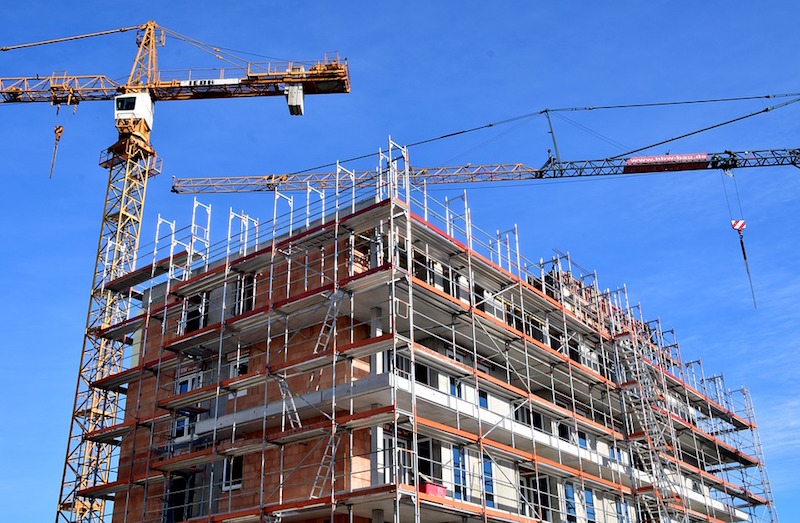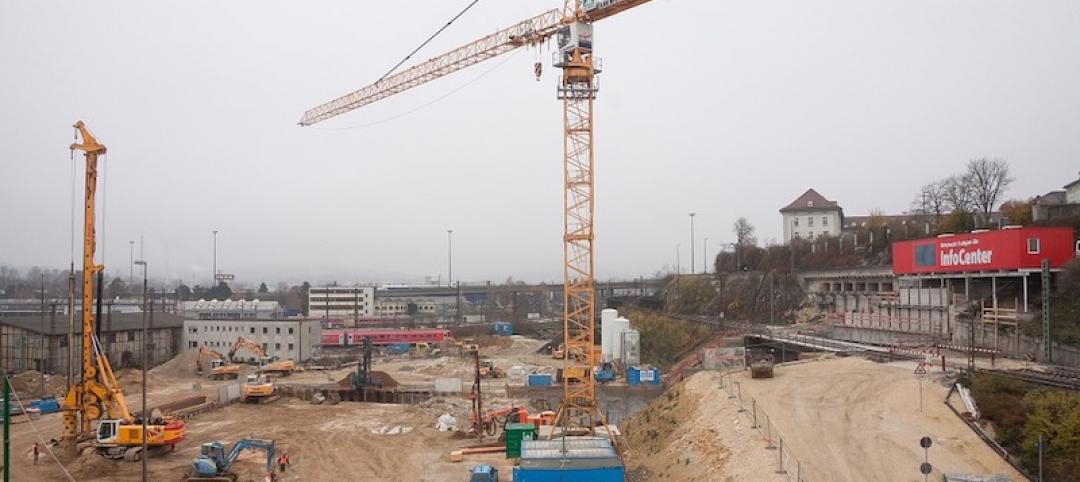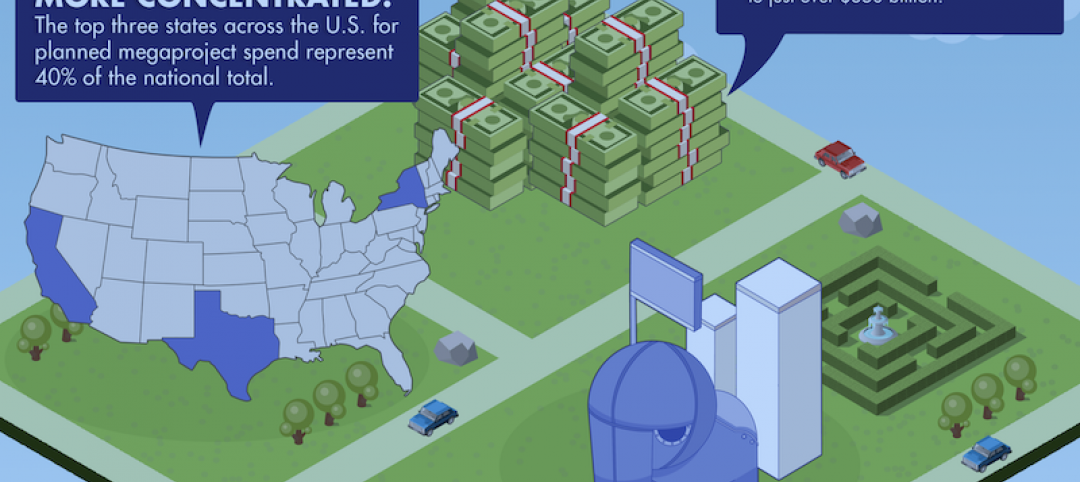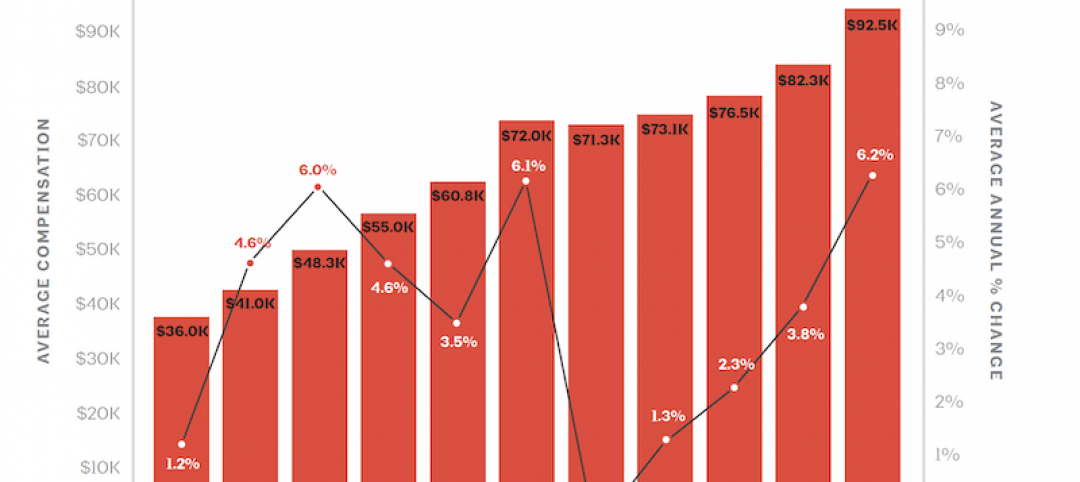Construction costs climbed again in March, with increases for a wide range of building materials, including many that are subject to proposed tariffs that could drive prices still higher and cause scarcities, according to an analysis by the Associated General Contractors of America of Labor Department data released today. Association officials warned that tariffs on some items might lead to project delays and cancellations if supplies become unobtainable or too expensive for current budgets.
"Prices increased for many items in March, even before tariffs announced for steel, aluminum and many items imported from China have taken effect," said the association's chief economist, Ken Simonson. "Steel service centers and other suppliers are warning there is not enough capacity at U.S. mills or in the trucking industry to deliver orders on a timely basis. Thus, contractors are likely to experience still higher prices as well as delivery delays in coming months."
The producer price index for inputs to construction industries, goods—a measure of all materials used in construction projects including items consumed by contractors, such as diesel fuel—rose 0.8% in March alone and 5.8% over 12 months. The year-over-year increase was the steepest since 2011, the economist noted.
"Many items contributed to the latest round of increases," Simonson observed. "Moreover, today's report only reflects prices charged as of mid-March. Since then, some tariffs have taken effect, many others have been proposed, and producers of steel and concrete have implemented or announced substantial additional increases."
From March 2017 to March 2018, the producer price index jumped by 13.7% for lumber and plywood, 11.4% for aluminum mill shapes, and 4.9% for steel mill products. The U.S. has been in a dispute with Canada over lumber imports, has imposed tariffs on several types of steel and has announced or recently imposed additional tariffs—not reflected in the March price index—on steel, aluminum and numerous Chinese construction products.
Other construction inputs that rose sharply in price from March 2017 to March 2018 include diesel fuel, 39.7%; copper and brass mill shapes, 11.2%; gypsum products, 8.4%; and plastic construction products, 5.8%. In addition, concrete and other suppliers announced significant price hikes that were due to take effect in April.
Construction officials said the tariffs that have been announced have already triggered a surge of orders that mills say they cannot fill on a timely basis, which will create budget problems, delays and possibly cancellations for infrastructure and other public projects. They said adequate funding of infrastructure would be a better way to foster demand for domestic steel and aluminum without harming contractors.
"Tariffs will harm contractors that are currently working on projects for which they have not bought materials and will disrupt budgets for future construction," said Stephen E. Sandherr, the association's chief executive officer. "The best way to help the U.S. steel and aluminum sector is to continue pushing measures, like regulatory reform and new infrastructure funding, that will boost demand for their products as the economy expands."
View producer price indexes for construction.
Related Stories
Market Data | Oct 4, 2019
Global construction output growth will decline to 2.7% in 2019
It will be the slowest pace of growth in a decade, according to GlobalData.
Market Data | Oct 2, 2019
Spending on nonresidential construction takes a step back in August
Office, healthcare, and public safety are among the fastest-growing sectors, according to the U.S. Census Bureau's latest report.
Market Data | Sep 27, 2019
The global hotel construction pipeline ascends to new record highs
With the exception of Latin America, all regions of the globe either continued to set record high pipeline counts or have already settled into topping-out formations amidst concerns of a worldwide economic slowdown.
Market Data | Sep 25, 2019
Senate introduces The School Safety Clearinghouse Act
Legislation would create a federally funded and housed informational resource on safer school designs.
Market Data | Sep 18, 2019
Substantial decline in Architecture Billings
August report suggests greatest weakness in design activity in several years.
Market Data | Sep 17, 2019
ABC’s Construction Backlog Indicator inches lower in July
Backlog in the heavy industrial category increased by 2.3 months and now stands at its highest level in the history of the CBI series.
Market Data | Sep 13, 2019
Spending on megaprojects, already on the rise, could spike hard in the coming years
A new FMI report anticipates that megaprojects will account for one-fifth of annual construction spending within the next decade.
Architects | Sep 11, 2019
Buoyed by construction activity, architect compensation continues to see healthy gains
The latest AIA report breaks down its survey data by 44 positions and 28 metros.
Market Data | Sep 11, 2019
New 2030 Commitment report findings emphasize need for climate action
Profession must double down on efforts to meet 2030 targets.
Market Data | Sep 10, 2019
Apartment buildings and their residents contribute $3.4 trillion to the national economy
New data show how different aspects of the apartment industry positively impact national, state and local economies.
















